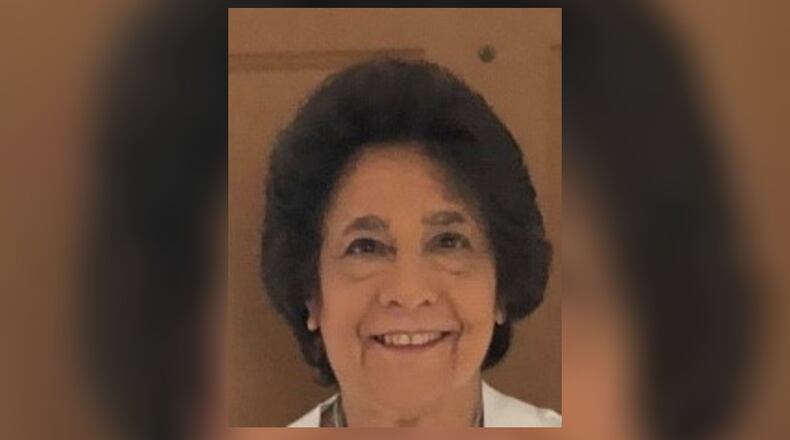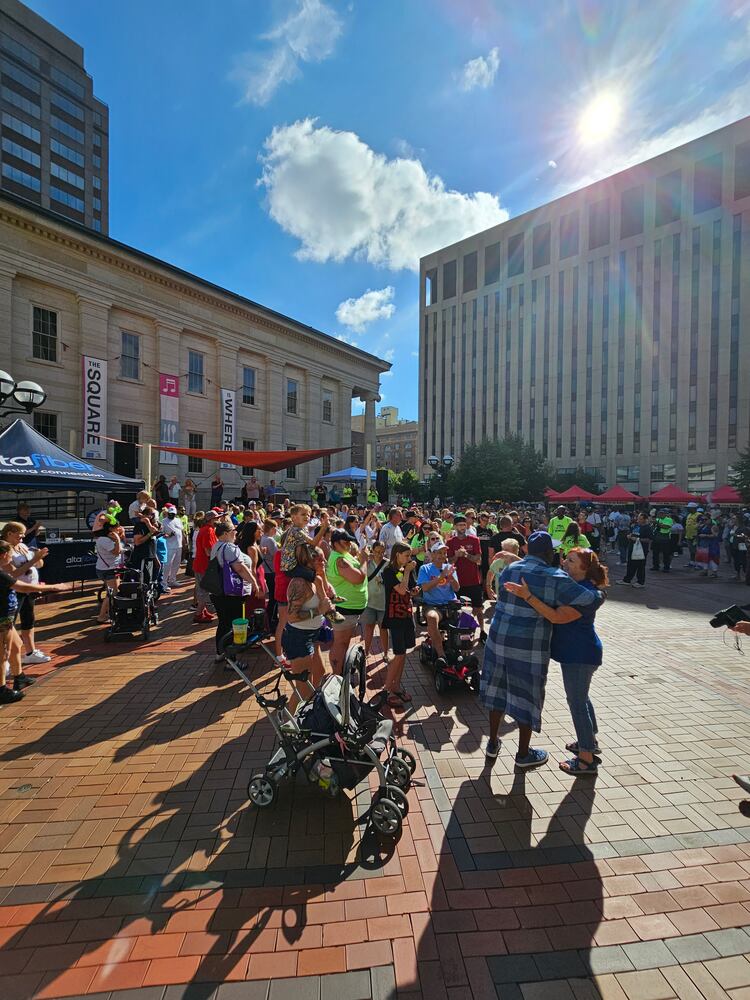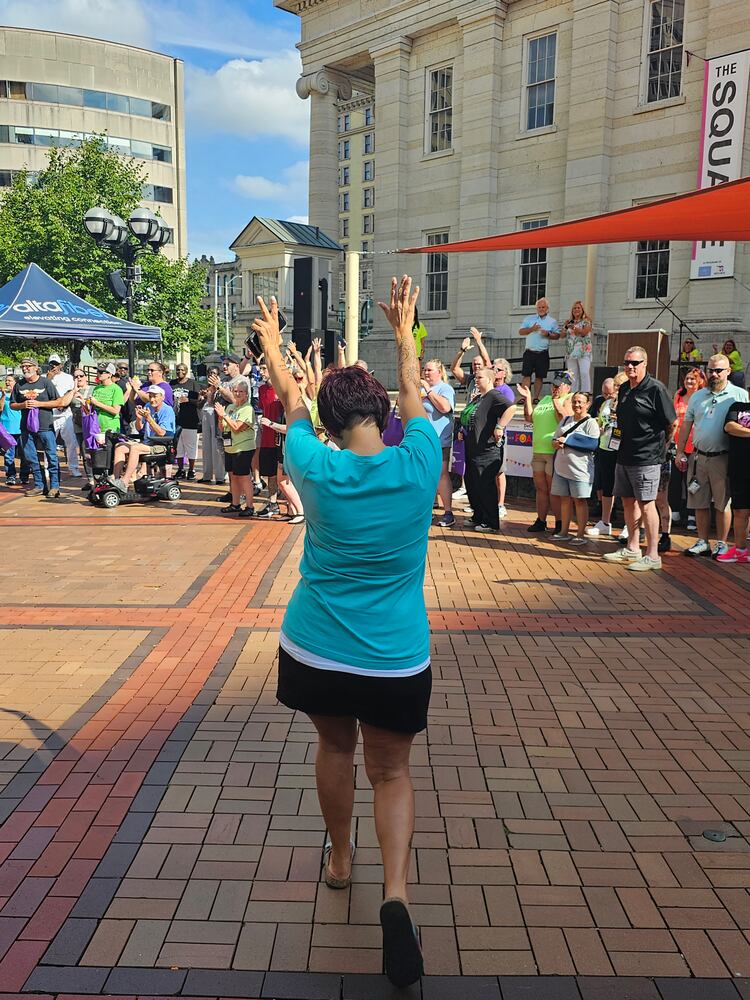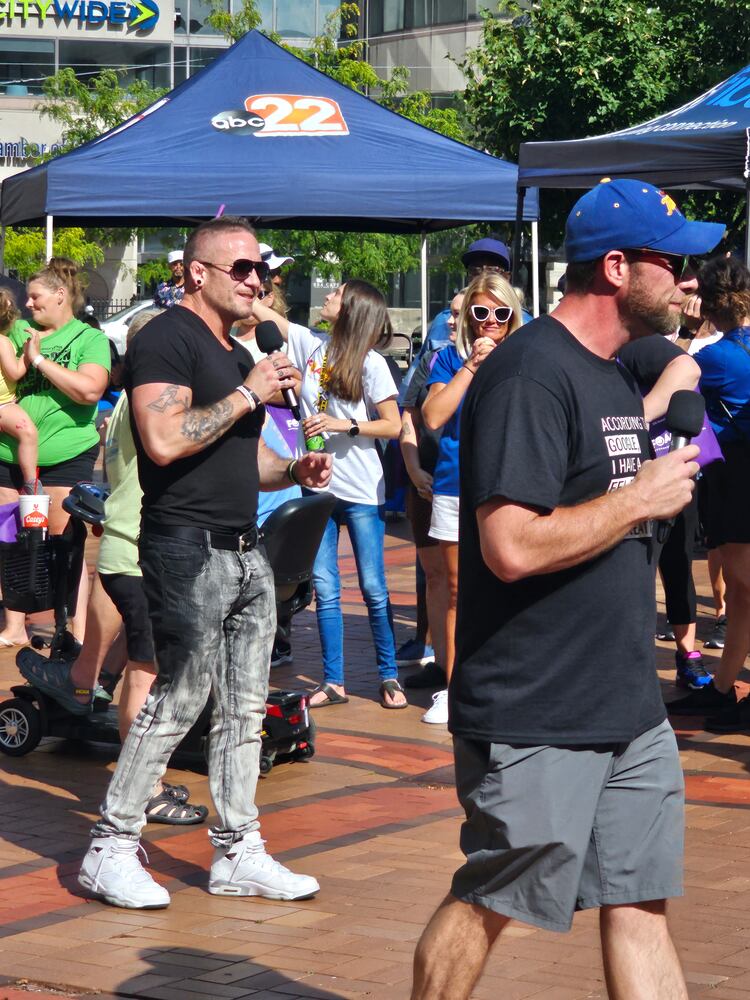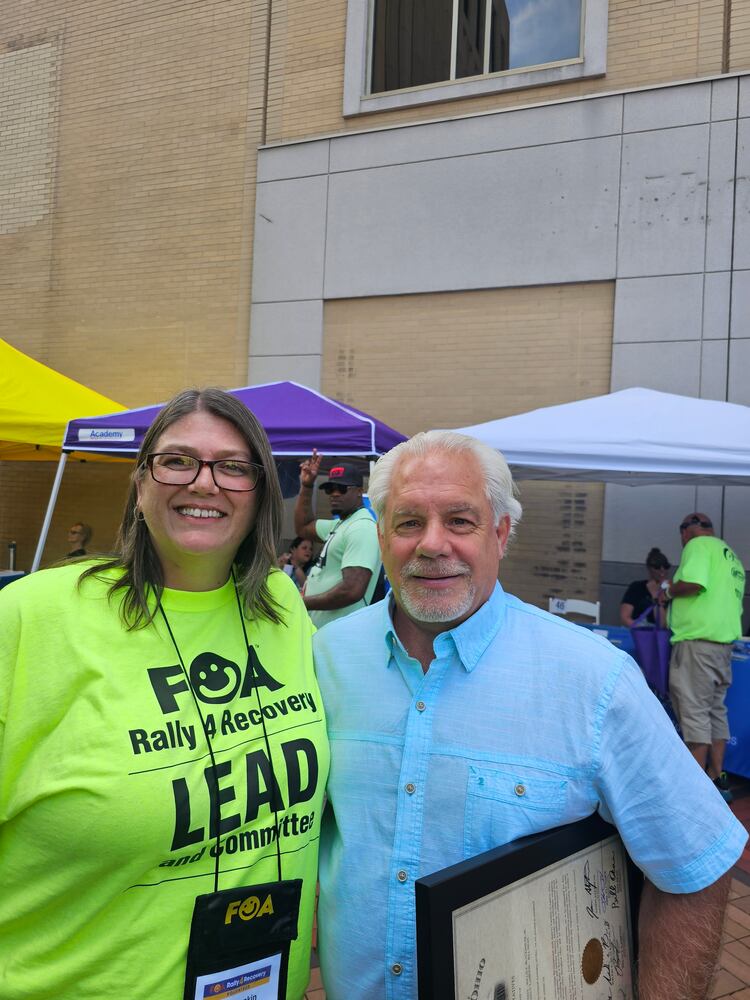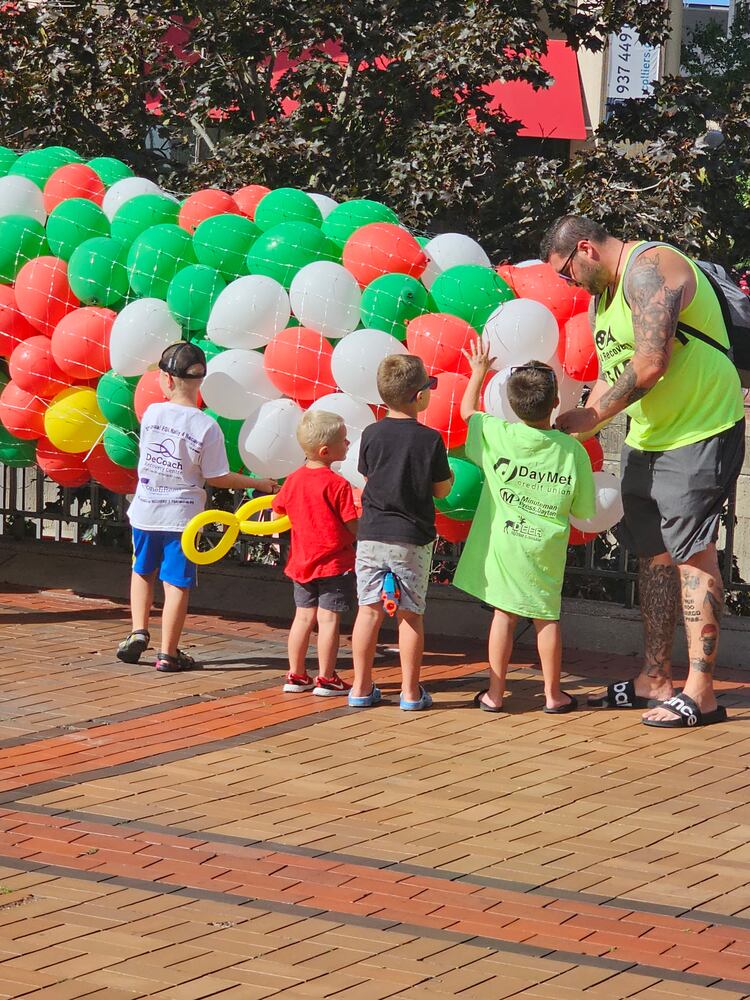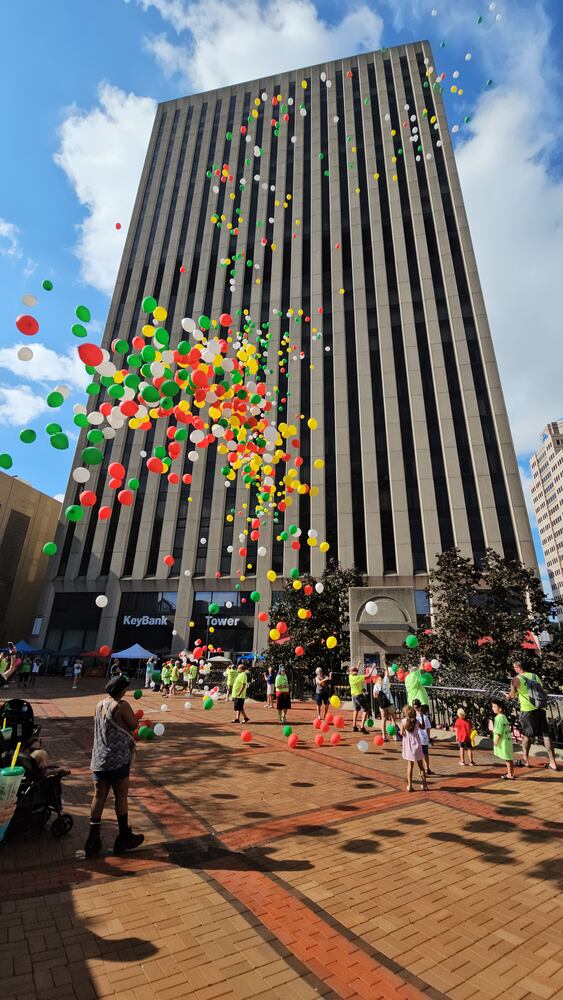Addiction occurs within every age, race, educational level, and socio-economic group. Speakers told their stories, their ups and downs in their journey to recovery, and reminded us that recovery is possible.
“After listening to a county sheriff discuss a physical injury which resulted in addiction, I thought that could have been me,” one attendee noted.
There was music, activities for children, food trucks, a photo booth and more. The “Big Pic” shows a huge crowd of people who are in recovery, some for decades, as well as family members and friends who witnessed their loved ones’ journeys to recovery.
One attendee observed “the rally is proof of decreasing stigma.” Stigma is the barrier that often prevents people from seeking treatment or from acknowledging that their loved one is in active addiction. Knowing how harshly you will be judged by others is a tremendous hurdle to overcome.
A woman in long term recovery described it best: “Imagine taking your greatest fear, obstacle, disappointment, the thing that you struggle with the most, something that you will be harshly judged for, and blast it out for the world to hear. Everyone gets to know. That’s what a person who struggles with substance abuse deals with. The world gets to know!”
The rally also is a time for some to reflect on the loss of their loved one to addiction and to honor their memory. Various booths provided Naloxone, which can be easily administered by anyone to reverse an overdose. Naloxone saves lives every day.
From its earliest start when founded by Lori Erion, FOA continues to grow with weekly meetings in several areas and new programs to support those touched by addiction. While Lori was in long term recovery from alcohol and other drugs, she was completely blindsided by her daughter’s heroin addiction. And if she couldn’t understand it, how could others with no such background know where to start to help their loved ones? She could not imagine how one little support group would grow into such a large and well-respected organization. FOA’s unique approach is to bring everyone together, which fosters communication, insight, and education between family members, friends, and those in or seeking recovery. FOA’s mission is: To educate, empower and embrace families, friends and individuals struggling with addiction by providing support and promoting recovery.
Information about the FOA-LINK Support Network (a helpline which provides ongoing support and resources for anyone touched by addiction), meeting information, community resources, and more can be found at FOAFamilies.org and on social media.
Sandy Woodruff is the president of Families of Addicts Board of Directors.
About the Author
